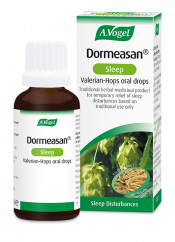Can a lack of sleep affect how you eat?
It’s not exactly a secret that a poor night of sleep often gives birth to intense hunger cravings the following day as we find ourselves increasingly reaching for sugary, carb-heavy foods. In my blog, ‘Is your lack of sleep making you overeat?’ I go into a little bit more depth about the ins and outs of why this can happen but in a nutshell it comes down to how sleep deprivation influences your hormones.
You see, your appetite, by and large, is regulated by the hormones ghrelin and leptin. Ghrelin helps to stimulate hunger cravings, allowing your body to know when it’s time to eat and leptin acts as an appetite suppressor, promoting feelings of fullness and satiety. However, if you don’t get enough sleep, it can interfere with the balance of these hormones, increasing your levels of ghrelin and your susceptibility to cravings.
It also doesn’t help that sleep lowers your energy levels which means that your body is going to be desperate for alternative sources of fuel. Carb-heavy foods and sugar can, at least briefly, increase your energy levels but they also cause a drastic ‘crash’ which again, results in even more cravings thus causing a vicious cycle to emerge.
1 – Chocolate
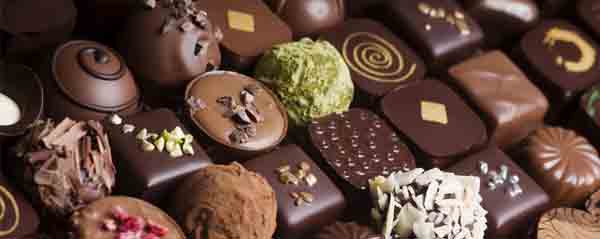
For so many of us, chocolate is the ultimate comfort food and our brains immediately associate it with positive emotions, viewing it almost as a reward or something to cling to in times of stress. If you’re sleep deprived though, you may start to find that your cravings for chocolate are increased and, as I’ve mentioned, this is often due to your blood sugar levels.
There’s some evidence to suggest that, if your sleep deprived, it can raise your blood sugar levels quite dramatically which, in turn will inevitably lead to a crash.1 When your blood sugar levels rapidly drop, your body will start to crave sugary foods like chocolate. It also doesn’t help that that ‘reward’ system I mentioned earlier can come into play too as, if you are sleep deprived, you’re probably more susceptible to emotional issues such as stress or low mood, which can easily have you reaching for your favourite comfort food.
It also doesn’t help that some types of chocolate contain a decent amount of caffeine. Dark chocolate, for example, which is often perceived as being the healthier option, sometimes contains as much as 12mg of caffeine per ounce2 which means that chocolate, if consumed late enough at night, could potentially go on to disturb your sleep patterns!
2 – Crisps
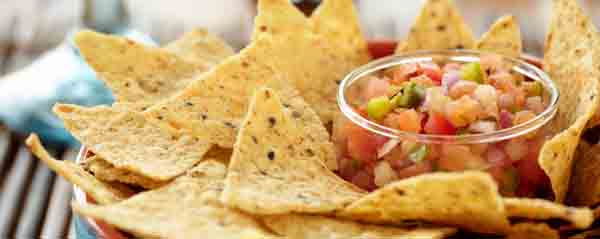
Chocolate might be the ultimate comfort food but not all of us will wake up after a poor night’s sleep craving a bar of Dairy Milk. In fact, sometimes our cravings are for more salty, savoury foods in which case a packet of Walker’s Salt and Vinegar crisps are more likely to make it to the top of your menu – but why?
Well, it could be for a number of reasons but the most likely is that sleep deprivation and stress are taking a toll on your adrenal glands. It’s no secret that, when you’re sleep deprived, you are more susceptible to stress which means that your adrenal glands are going to be working overtime to produce stress hormones such as corticosterone. However, your adrenal glands also produce aldosterone, a hormone which helps to control your blood pressure by maintaining the right balance of sodium and water.3
When your adrenal glands become fatigued or overworked, you’re going to feel exhausted, plus, if these glands are struggling to produce aldosterone it means your blood pressure could possibly be affected, as well as your balance of sodium and water thus creating the aforementioned cravings for all things salty!
3 – Red meat
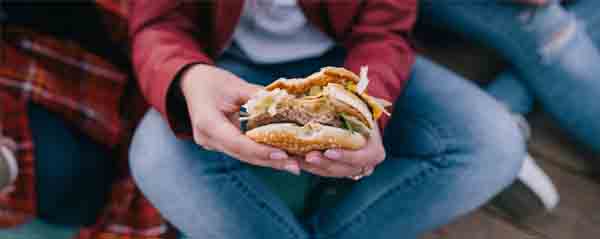
If salty or sweet foods aren’t doing the trick for you, there’s a chance you might find yourself really craving a good gourmet burger or even a medium rare steak topped with peppercorn sauce. Red meat, while not good for your health if consumed in overabundant amounts, does contain a decent amount of iron and vitamin B12– two nutrients that your body really needs to fight of feelings of fatigue and to ensure you get a good night of sleep.
In her blog, ‘Struggling to stay awake? You could need more vitamin B12!’ Our Nutritionist Emma, discussed the symptoms of vitamin B12 deficiency in a little bit more detail but suffice to say, this nutrient is crucial for supporting your nerves, mood and muscle as it plays a key role in synthesising the neurotransmitter serotonin.
Serotonin, aside from being vital for your mood, also acts a precursor to melatonin, the sleep hormone, so, if your body isn’t synthesising serotonin properly, then it could have a knock on effect on melatonin, possibly making it more difficult for you to fall asleep at night and thus enabling symptoms of fatigue and tiredness the next day.
4 – Mac & Cheese
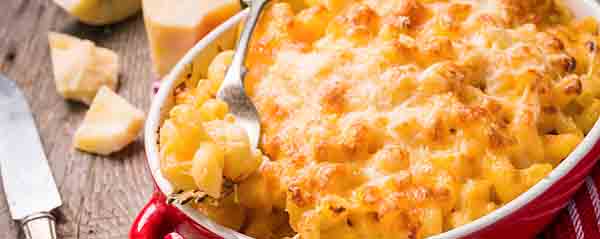
If you’re feeling sluggish, tired and sleepy, the chances are you’re really craving a big meal – mac & cheese, pizza, stew or a roast dinner. You want something that’s really going to satisfy those hunger cravings and high calorie, carb-heavy meals really tick all the boxes here. As I mentioned earlier, a big reason why you’re actively seeking high calorie foods is because your levels of ghrelin are likely elevated, however, carbs also satisfy another of your body’s needs – the need for fuel.
This is because carbohydrates often act as your body’s primary source of fuel – it’s why athletes often ‘carb load’ before participating in an event and, if your energy levels are low, your body is instinctively going to want carb-rich foods, presuming that these will perk your energy levels right back up.
However, just as with sugar, carbohydrates can be a real problem for your sleep pattern as they are broken down into glucose which can impact your blood glucose levels. In fact, studies have shown that a high consumption of carbs is often associated with less time spent in deep sleep which in turn will induce symptoms of sleep deprivation, forming a vicious cycle.
5 – Caffeine
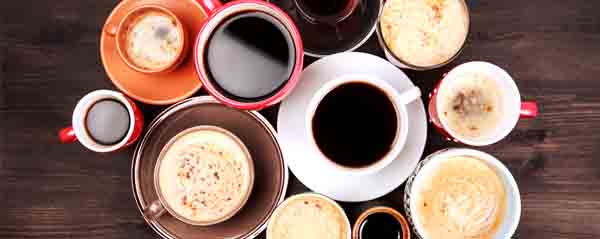
The final entrant on this list, I’m sure this won’t come as a surprise to any of you! It’s only natural that, if you’re feeling sleepy and exhausted, a caffeinated drink like tea or coffee is probably at the top of your priority list. After all, caffeine does act as a stimulant so, at least in the short term, it can help to alleviate feelings of fatigue and give your energy levels a temporary boost.
Nevertheless though, too much caffeine can have a number of unpleasant repercussions – not only do caffeinated drinks like coffee deplete your stores of crucial sleep-boosting nutrients like magnesium, it can also act as a diuretic, upsetting your gut and potentially leading to dehydration. It’s also worth noting that not too many people seem to understand just how long caffeine can linger in their systems for.
As I mention in my blog, ‘How does caffeine really affect your sleep?’ it takes 4-6 hours for just half the caffeine you’ve consumed to leave your body. That means that if you’re having a cup of coffee at that 3pm slump, it could still be circulating in your system at 10pm and this effect can even be prolonged if you’re on certain medications like the contraceptive pill!
How do you fight food cravings?
Okay, so far I’ve looked at why you might be craving certain foods when your sleep deprived but what can you do to fight these cravings? Well I’m glad you asked as in my next blog I’m going to take a look at 6 foods that may be able to help you cope with sleep deprivation!
1https://www.webmd.com/diabetes/features/diabetes-lack-of-sleep#1
2https://www.healthline.com/health/does-chocolate-have-caffeine
3https://www.endocrineweb.com/endocrinology/overview-adrenal-glands
4https://www.thesleepdoctor.com/2016/06/27/eat-matter-sleep/







